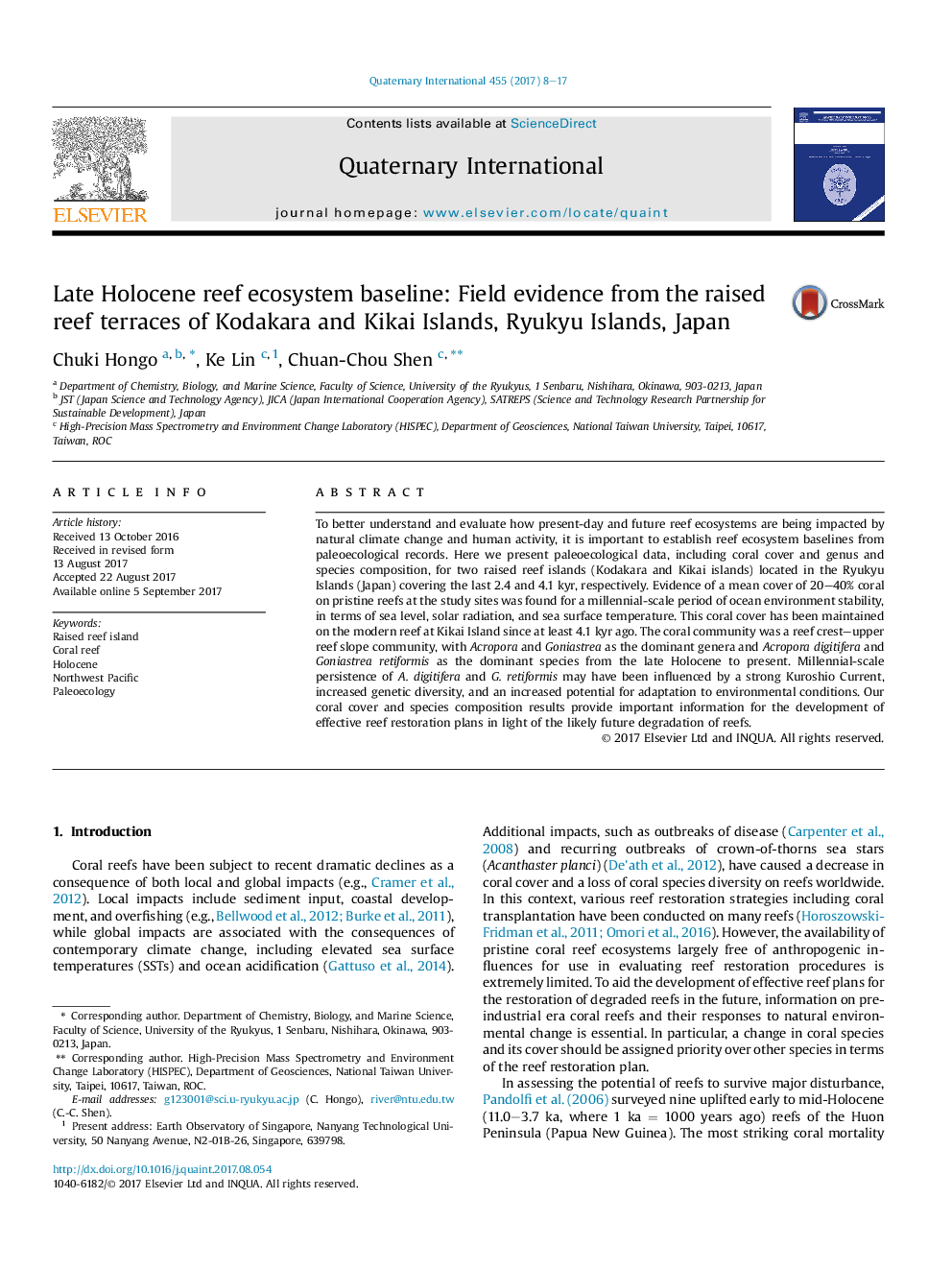ترجمه فارسی عنوان مقاله
اواخر قرن نوزدهم اکوسیستم هولوکن: شواهد حاصله از تراکی های صخره های کوچکارا و کیکی، جزایر ریوکیو، ژاپن
عنوان انگلیسی
Late Holocene reef ecosystem baseline: Field evidence from the raised reef terraces of Kodakara and Kikai Islands, Ryukyu Islands, Japan
| کد مقاله | سال انتشار | تعداد صفحات مقاله انگلیسی |
|---|---|---|
| 143235 | 2017 | 10 صفحه PDF |
منبع

Publisher : Elsevier - Science Direct (الزویر - ساینس دایرکت)
Journal : Quaternary International, Volume 455, 7 October 2017, Pages 8-17
ترجمه کلمات کلیدی
جزیره صخره ای افزایش یافته است صخره مرجانی، هولوسن، شمال غرب اقیانوس آرام، پالئواکولوژی،
کلمات کلیدی انگلیسی
Raised reef island; Coral reef; Holocene; Northwest Pacific; Paleoecology;

